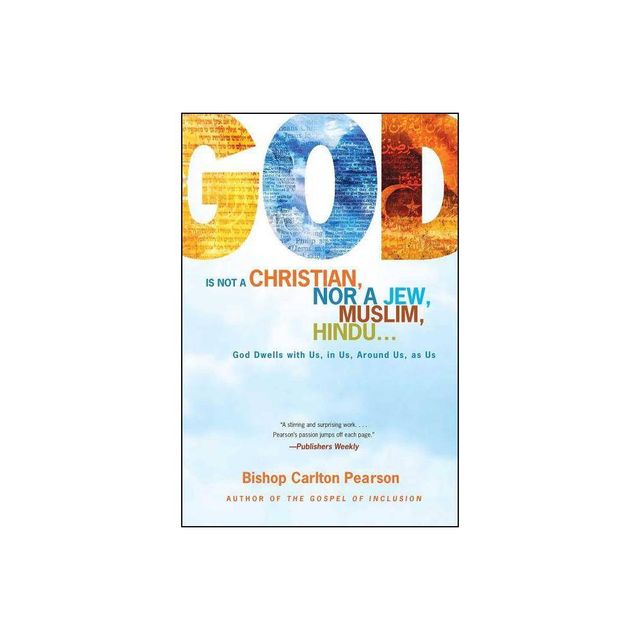Home
The Questioning God: An Inquiry for Muslims, Jews, and Christians
Loading Inventory...
Barnes and Noble
The Questioning God: An Inquiry for Muslims, Jews, and Christians
Current price: $11.99


Barnes and Noble
The Questioning God: An Inquiry for Muslims, Jews, and Christians
Current price: $11.99
Loading Inventory...
Size: OS
*Product Information may vary - to confirm product availability, pricing, and additional information please contact Barnes and Noble
A questioning approach lies at the heart of our relationship with God. That's how God engages us. In fact, questioning (or free inquiry), is central to our being human.
Yet the major monotheistic religions vary markedly on this matter. In
The Questioning God,
Dr. Greenham examines the three major monotheistic religions, Islam, Judaism, and Christianity, to see how they relate to questioning, including questions that God asks us and the questions that we ask about God. His goal is to develop a biblical theology of questioning, avoiding a loss of direction and focus that results from selective questioning, and also a loss of humanity that results from bypassing our questions through an inappropriate submission.
The examination is wide ranging, including chapters on questioning in Islam, Judaism, mainline and evangelical Christianity, along with an examination of the consequences of a non-questioning culture. He ends the book with a proposal for a biblical theology and a look at the practical implications-just what it means to pursue a questioning culture.The author finds that questions are not just valuable, they are essential for serious human interaction. "As questioning beings," he concludes, "there is no limit to what we might ask, but our questions must always be anchored in the questioning God's enduring concern to engage us."
Yet the major monotheistic religions vary markedly on this matter. In
The Questioning God,
Dr. Greenham examines the three major monotheistic religions, Islam, Judaism, and Christianity, to see how they relate to questioning, including questions that God asks us and the questions that we ask about God. His goal is to develop a biblical theology of questioning, avoiding a loss of direction and focus that results from selective questioning, and also a loss of humanity that results from bypassing our questions through an inappropriate submission.
The examination is wide ranging, including chapters on questioning in Islam, Judaism, mainline and evangelical Christianity, along with an examination of the consequences of a non-questioning culture. He ends the book with a proposal for a biblical theology and a look at the practical implications-just what it means to pursue a questioning culture.The author finds that questions are not just valuable, they are essential for serious human interaction. "As questioning beings," he concludes, "there is no limit to what we might ask, but our questions must always be anchored in the questioning God's enduring concern to engage us."


















